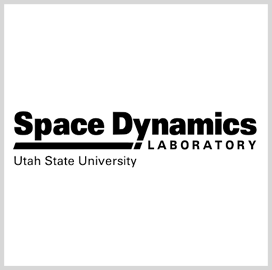Space Dynamics Laboratory (SDL), a nonprofit research unit of Utah State University, will explore sensor systems under a pair of contracts worth $1.31 billion combined from the U.S. Air Force and the Missile Defense Agency (MDA).
SDL will develop engineering support and capability for the Air Force Research Laboratory’s space vehicles directorate through the Space & Nuclear Advanced Prototypes, Experiments & Technology (SNAPET) program.
The five-year, $1.01 billion SNAPET contract will include system development and validation, modeling, simulation and data analysis work.
For the MDA contract, valued at $300 million over seven years, the university-affiliated research organization will develop and engineer sensors for space applications. Both awards use an indefinite-delivery/indefinite-quantity type of procurement.





